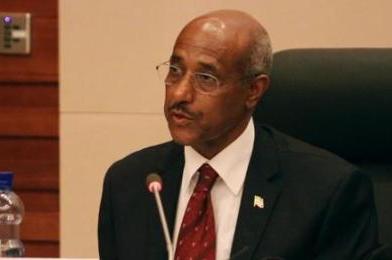IGAD halts S. Sudan peace talks to consult principal rivals
October 4, 2014 (ADDIS ABABA) – Mediators of the intergovernmental Authority on Development (IGAD) which mediate the 9-month old peace talks between South Sudanese warring parties have adjourned the talks in order to consult with top rival leaders over contentious issues.

Some issues of contention included disagreements over power-sharing and division of powers between president and the would-be prime minister to be nominated by the rebel group.
Machar’s spokesperson, James Gatdet Dak when contacted on Saturday confirmed there remained disagreements over issues of governance and structure.
He said while the two parties agreed in principle to adopt federalism as governing system in the country, the two parties were yet to agree on which type of federalism and when the system should be implemented, among others.
“IGAD mediation has decided to adjourn the peace talks so that its leadership can consult with the principals of the two warring parties,” Dak told Sudan Tribune.
He accused government delegates of dragging their feet and playing delaying tactics while preparing for further violence, saying they were not negotiating in good faith.
Dak further explained that while the opposition group wanted federalism adopted and implemented as the basis for a peace agreement, the government wanted to delay implementation of the system.
He further added that the government had been resisting implementation of the system soon.
The two parties could not also agree on division of executive powers between the president and prime minister. The government argues that citizens’ opinion be sought over the question of when to implement the federalism system.
The parties to the conflict were given 45 days within which to reach an agreement, but this is unlikely to happen given the current disagreements.
Tens of thousands of people have died and 1.5 million others displaced since the violence began in mid-December when political debates turned violent.
(ST)
